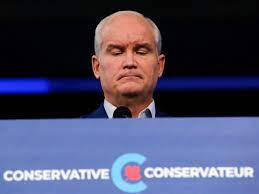Things are pretty tough these days in Alberta. Dave Climenhaga writes:
Brace yourselves, Alberta, for a hard circuit-breaker lockdown to rein in the province’s surging, out-of-control COVID-19 infection rate.
We can be reasonably certain this is coming soon, because Premier Jason Kenney informed us Sunday that there’s no way it’s going to happen.
Alberta's doctors have been pleading for a lockdown:
Kenney took to the airwaves to respond to calls for a “firebreak” lockdown to counter the collapse of the province’s health-care system, including a weekend open letter from the province’s former chief medical officer of health and a critical care physician.
In the letter, James Talbot and Noel Gibney urged newly appointed Health Minister Jason Copping to close bars, gyms, casinos, indoor dining and sports facilities for at least four weeks.
University of Alberta economist Andrew Leach tweeted that Kenney had “rejected the possibility of a fourth wave, and previously rejected calls for more stringent measures during the second and third waves. He rejected calls for a vaccine passport. He rejected calls to replace Shandro” — that is, his former Health Minister Tyler Shandro, who is now the labour minister.
So, Leach concluded, “Kenney rejecting something is a sure sign that it’s coming.”
As they say in the American South, "This boy's cheese slid off his cracker."
Image: You Tube




























